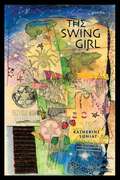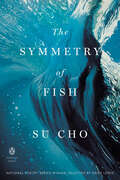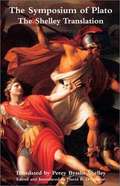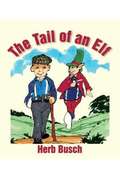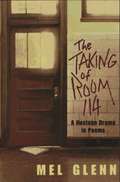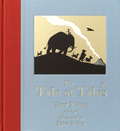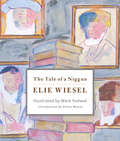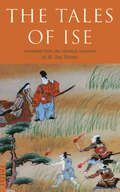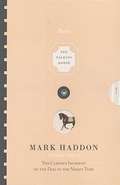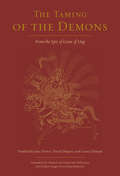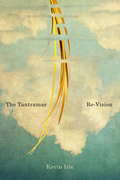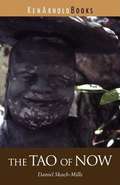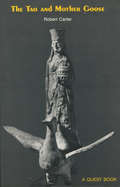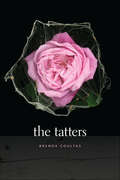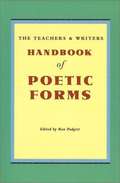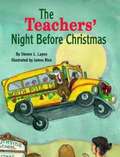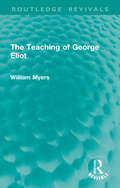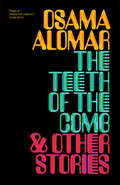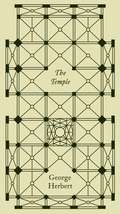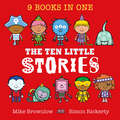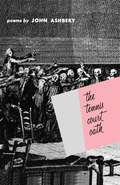- Table View
- List View
The Swing Girl: Poems
by Katherine SoniatIn the title poem of The Swing Girl, a Greek burial relic with an image of a small child on her swing suggests the ability to move between present culture and the ghosts of history, between modern metaphor and the rhetoric of myth. Katherine Soniat celebrates this fluidity and the detached yet vulnerable perception that comes with it: "The territory that girl could cover, her eyes peering birdlike / across the grove. The air, a vector."Soniat's new collection contemplates the present through the fragmented lens of history. She swings the reader out across time, to ancient Greece and China, and into the chaos of contemporary war in Serbia and Iraq. The ever-changing point of view disorients, so that ultimately even the daylight overhead seems uncertain: "... the far smear of daylight, granular and moony." Loss provides the substance of history and myth, sounding the dark, minor key of elegy for lives and geographies cracking under pressure.In Soniat's poems the precarious puzzle of this world shatters, only to begin again in startling new ways: "The story of the mountain always points somewhere / else, elusive as the tawny lion disappearing behind / the next high crag."
The Symmetry of Fish (Penguin Poets)
by Su Cho&“All hits no skips. I was incredibly moved by these poems.&” —Roxane Gay, via GoodreadsFrom National Poetry Series winner Su Cho, chosen by Paige Lewis, a debut poetry collection about immigration, memory, and a family&’s lexiconLanguage and lore are at the core of The Symmetry of Fish, a moving debut about coming-of-age in the middle of nowhere. With striking and tender insight, it seeks to give voice to those who have been denied their stories, and examines the way phrases and narratives are passed down through immigrant families—not diluted over time, but distilled into potency over generations. In this way, a family's language is not lost but continuously remade, hitched to new associations, and capable of blooming anew, with the power to cut across space and time to unearth buried memories. The poems in The Symmetry of Fish insist that language is first and foremost a bodily act; even if our minds can't recall a word or a definition, if we trust our mouths, expression will find us—though never quite in the forms we expect.
The Symposium of Plato: The Shelley Translation
by Percy Bysshe Shelley David K. O'ConnorIn the summer of 1818, Percy Bysshe Shelley pulled himself away from a flurry of other projects to devote himself to translating Plato's Symposium. Besides being one of the very great lyric poets of Romanticism, Shelley was an accomplished Hellenist, and had a natural sympathy for Plato's way of seeing the world. The result of his labor was a translation of Plato's principal work on love that is, in both clarity and felicity of expression, unmatched by any contemporary translation.<p><p> Much of what the dialogue offers to today's reader - namely, its invitation to see erotic experience as the privileged locus of our contact with the sacred and the divine - is lost in translation by failures of tone more than by inaccuracies or simple infelicities. The elevation and sophistication of Shelley's prose makes his translation a much better English vehicle for Plato's writing than the rather chatty and colloquial translations current today. Plato's speeches on love need an English idiom in which myth is at home, and in which humor rises to urbanity rather than descending to mere wit and joke. With Shelley, we get a translation of a great literary masterpiece by a writer who is himself a literary master, and his mastery is of exactly the type required by Plato's text.<p> This translation came at the height of Shelley's powers, mirroring in language and conception some of his finest works, and so is itself a precious document in the history of Romanticism, for which the reappropriation of Plato is second in importance only to the massive influence of Shakespeare. Mary Wollstonecraft Shelley, her husband's literary executor, upon publication of (a somewhat expurgated version of) the dialogue, boasted that "Shelley resembled Plato; both taking more delight in the abstract and the ideal than in the special and the tangible. This did not result from imitation; for it was not till Shelley resided in Italy that he made Plato his study. He then translated his Symposium and Ion; and the English language boasts of no more brilliant composition than Plato's Praise of Love translated by Shelley." If this goes too far, it goes at least in the right direction.
The Tail of an Elf
by Herb BuschWhen a man is driven from his office by a series of wrong number phone calls his life is changed for the better when he meets a garishly dressed three foot elf who charms everyone he meets. The tale is told as a light hearted poem.
The Taking of Room 114: A Hostage Drama in Poems
by Mel GlennA series of poems reflect the thoughts of school officials, parents, police, and especially a class of seniors who have been taken hostage by their high school history teacher.
The Tale of the Alerion
by Constance B. Hieatt Guillaume De Machaut Minnette GaudetGuillaume de Machaut, the most important poet and musician of fourteenth-century France, had considerable influence on subsequent generations of writers in both France and England. With this scholarly translation, Minnette Gaudet and Constance B. Hieatt made his longneglected narrative poem, the Dit de l'alerion - a treatise on love and falconry - available to students of medieval literature. In the poem, Machaut defines the problems and pleasures of courtly love by comparing them to those of falconry, a sport which modern readers know little about. The introduction and notes to this edition provide valuable information about the art of falconry, thus clarifying aspects of the poem which might be hard to understand today. The scholarly notes and introduction furnish explications and variant readings of obscure passages and comments on wordplay. A running summary of the contents of the poem is also provided in the margins.
The Tale of Dan De Lion
by Thomas M. DischDan De Lion, a weed in the garden of an autocratic rose fancier, truimphs over the threat of extinction in this fable of the ordinary man confronting power and ruthlessness. In the tradition of Lewis Carroll and Edward Gorey, Thomas M. Disch characterizes his rakish dandelions and pampered roses with a combination of humor and philosophical insight. Wry illustrations by Rhonda McClun bring the snooty roses and "lower-dass" dandelions to full flower.
The Tale of Tales
by Tony MittonA new offering by award-winning poet Tony Mitton, beautifully illustrated by Peter Bailey. Short installments comprise The Tale of Tales, the story of a group of animals making their way to Volcano Valley to hear the Tale of Tales, the greatest story ever told. Along the way, the animals meet new travelers and each shares his own story with the group. This delightful story, filled with humor and warmth, and charmingly illustrated throughout with line drawings, is sure to become a favorite for reading aloud, as well as for newly independent readers.
The Tale of a Niggun
by Elie WieselElie Wiesel&’s heartbreaking narrative poem about history, immortality, and the power of song, accompanied by magnificent full-color illustrations by award-winning artist Mark Podwal. Based on an actual event that occurred during World War II. It is the evening before the holiday of Purim, and the Nazis have given the ghetto&’s leaders twenty-four hours to turn over ten Jews to be hanged to &“avenge&” the deaths of the ten sons of Haman, the villain of the Purim story, which celebrates the triumph of the Jews of Persia over potential genocide some 2,400 years ago. If the leaders refuse, the entire ghetto will be liquidated. Terrified, they go to the ghetto&’s rabbi for advice; he tells them to return the next morning. Over the course of the night the rabbi calls up the spirits of legendary rabbis from centuries past for advice on what to do, but no one can give him a satisfactory answer. The eighteenth-century mystic and founder of Hasidism, the Baal Shem Tov, tries to intercede with God by singing a niggun—a wordless, joyful melody with the power to break the chains of evil. The next evening, when no volunteers step forward, the ghetto&’s residents are informed that in an hour they will all be killed. As the minutes tick by, the ghetto&’s rabbi teaches his assembled community the song that the Baal Shem Tov had sung the night before. And then the voices of these men, women, and children soar to the heavens. How can the heavens not hear?
The Tales of Ise
by H. Jay HarrisRevered as one of the great literary classics of Japan,The Tales of Ise is an anonymous tenth-century collection of Japanese poems and prose. First published in 1608 as Ise-monogatori, the work is a product of court life in which the romantic assignations, intrigues, and social standards of aristocratic society in ancient Japan are vividly revealed.Each of the 125 episodes in the book consists of a story plus poetry in the uta form(five lines totaling thirty-one syllables) following the life of a nameless hero, who embodies the social ideals of the era, from his "coming of age" to his death.
The Talking Horse and the Sad Girl and the Village Under the Sea: Poems
by Mark HaddonThat Mark Haddon's first book after The Curious Incident of the Dog in the Night-Time is a book of poetry will perhaps come as a surprise to his legions of fans; that it is also one of such virtuosity and range will simply astonish them. The Talking Horse and the Sad Girl and the Village Under the Sea reveals a poet of great versatility and formal talent: all the gifts so admired in Haddon's prose are in strong evidence here--the humanity of his voices, the dark humour and the uncanny ventriloquism but Haddon is also a writer of considerable seriousness, lyric power and surreal invention. Here are bittersweet love-lyrics, lucid and bold new versions of Horace, comic set-pieces, lullabies, wry postmodern shenanigans (including a note from the official board of censors on "18" certificate poetry), and an entire John Buchan novel condensed to five pages. The Talking Horse and the Sad Girl and the Village Under the Sea will consolidate his reputation as our most powerful myth-weavers and spell-makers, as well as one of the most outrageous and freewheeling imaginations at work in contemporary literature.
The Taming of the Demons: From the Epic of Gesar
by David Shapiro Lama Chonam Jane Hawes H.H. the Fourteenth Dalai Lama Dudjom Sangye Pema ShepaA newly translated volume of the centuries-old spiritual epic of King Gesar.For centuries, the epic tale of Gesar of Ling has been told across Asia. This epic is a living oral tradition, performed widely by singers and bards and beloved especially in Tibet. Considered the longest single piece of literature in the world canon, the epic of Gesar chronicles the legend of King Gesar of Ling, a heroic figure known for his fearless leadership. The epic encompasses some 120 volumes and nearly 20 million words, and there are numerous versions across cultures.This book is the first English translation of the fourth volume of this sweeping literary work, with stories from after Gesar's coronation to the throne of Ling. This volume focuses on battles won and strategies applied, as the warrior-king Gesar fended off demons and liberated his foes. Though largely a violent account focused on his superhuman prowess in battle, this volume is rich with ethical proverbs that inform Tibetan culture to this day. A significant work of legend, the epic of Gesar is also a vital part of Tibetan Buddhism, as Gesar is said to have been chosen by celestial beings to restore order and destroy anti-Buddhist forces.The epic of Gesar is the cultural touchstone of Tibet, analogous to the Iliad or the Odyssey. While Book One covers Gesar's birth, youth, and rise to power, this volume recounts the martial victories and magical feats that made him a legendary figure to so many.
The Tantramar Re-Vision (Hugh MacLennan Poetry Series #62)
by Kevin IrieI've lived the way a field is sometimes / a shelter for mice / or sometimes a source of game / for a hawkInspired by the literary landscape of the late poet John Thompson, Kevin Irie's The Tantramar Re-Vision presents a portrait of nature where the benign and the bedevilled coexist, collude, or collide.The Tantramar Re-Vision charts routes of discovery as it follows trails, waterways, flights, and fears, be it through the woods, the wilds, the page, or the mind where "it's hard to admit / you are not to your taste." It questions an existence in which the inhuman thrives, ignorant of divinity, while the human psyche continues to search for answers as "life takes directions / away from" it. The Tantramar Marsh setting of John Thompson's Stilt Jack resonates with Irie's landscapes of birds, fish, plants, and wildlife, all still within reach yet part of a world where "wind carries sounds / it cannot hear."Insightful and meditative, The Tantramar Re-Vision is poetry of the inner self and the outside observer, a poetic testament to the ways literature creates its own landmarks and nature survives without knowing a word.
The Tao Of Now
by Daniel Skach-MillsThis avatar of the Tao Te Ching comes to us as a contemporary, familiar creature, an incarnation both timeless and timely. In The Tao of Now, Daniel Skach-Mills gives us wisdom as refreshing and new as this moment's wind in the trees, wisdom as secure in tradition as the cardinal directions with which we name any wind's path.--Paulann Petersen, author of A Bride of Narrow Escape, The Wild Awake, and other books of poetry The Tao of Now shows us ourselves in eighty-one poems that, like the ancient Tao Te Ching, offer no answers. But they do challenge us to go beyond the intellect and reconnect with wisdom in a time of desperate need. As the author writes, The contemporary urgency for a consciousness and heart revolution is no longer an option if the planet, and humanity as a species, are to survive. His poems are here to help us make that shift. Aimed not at the thinking mind but at that part of our being which already knows the truth of what is here, Daniel Skach-Mills' poems are more like a remembering than a teaching. Each one calls us back to another voice but leaves us right where it finds us. These writings stand as a contemporary witness that the eternal Tao is alive and well, if people would only unplug, unwind, and take the time to listen with their whole Being. Daniel Skach-Mills is an award-winning poet whose poems have appeared in a variety of publications and anthologies, including The Christian Science Monitor, The Christian Century, Sojourners, Open Spaces, and Prayers To Protest: Poems That Center And Bless Us (Pudding House Publications, 1998). His chapbook, Gold: Daniel Skach-Mills's Greatest Hits, 1990-2000, appeared in 2001 from Pudding House. He and his partnerlive in Portland, Oregon.
The Tao and Mother Goose
by Robert CarterCompare nursery rhymes with Chinese aphorisms. Illustrated.
The Tao and Mother Goose
by Robert CarterArt instrutor Rober Carter's illustrated book is both enjoyable and informative, written in an engaging style. Rhymes of Mother Goose he suggests, frequently are spiritual parables. He compares many of the famous aphorisms from Lao Tsu's Tao The Ching, noting simitarities of viewpoints. Carter feels that teaching of the Chinese philosopher and even Mother Goose nursery rhymes are addresses to some deeper level within each one of us. Consequently, a simple word, phrase, or idea in this meditative picture book might spark something deep within the reader.
The Task and Other Poems
by William CowperINTRODUCTION THE TASK THE DIVERTING HISTORY OF JOHN GILPIN. AN EPISTLE TO JOSEPH HILL, ESQ. TO MARY.
The Tatters (Wesleyan Poetry Series)
by Brenda CoultasIn this nuanced and moving new collection of poems, Brenda Coultas weaves a meditation on contemporary life and our place in it. Coultas, who is known for her investigative documentary approach, turns her attention to landfills and the odd histories embedded in the materials found there. The poems make their home among urban and rural detritus, waste, trinkets, and found objects. The title poem, for example, takes its cue from the random, often perfect, pigeon feathers found on city streets. In a seamless weave of poetic sentences, The Tatters explores how our human processes of examination are often bound up with destruction. These poems enable us to be present with the sorrow and horror of our destructive nature, and to honor the natural world while acknowledging that this world no longer exists in any pure form, calling to us instead from cracks in the sidewalk, trash heaps, and old objects. Check for the online reader's companion at tatters.site.wesleyan.edu.
The Teachers & Writers Handbook Of Poetic Forms
by Ron PadgettThis bestselling reference guide includes 76 entries on traditional and modern poetic forms. Defined in alphabetical order, each entry is allotted 1-7 pages with examples and histories of-and ideas for using-each form.
The Teachers' Night Before Christmas
by Steven L. Laynefrom the book Jacket: Pop quiz: how does Santa deliver his presents to good educators on Christmas Eve? Keep your eyes on your own book and find the answer! Nothing compares to the excitement of children as Christmas approaches. Imagine the havoc in classrooms across the country on the last days of school before the holiday! This pedagogical twist on the Christmas classic will delight teachers (and even students) everywhere. The traditional trappings of Christmas at school-the Christmas pageant, a visit to a local nursing home, crafts, and the room mothers' party-all end in chaos, while the teachers struggle to maintain order and, after school, get their own shopping done. In a whimsical touch, Santa Claus arrives in his flying school bus to save the day and honor the teachers for their selfless devotion to their students. Teachers are sure to see themselves in this humorous parody based on the true stories of their peers. Steven Layne is a winner of the Milken Family Foundation National Educator Awards and The Edwin A. Hoey Award for Outstanding Middle School Educator and was a member of USA Today's "2001 All-USA Teacher Team." STEVEN LAYNE Dr. Steven L. Layne is a junior-high language arts teacher in Oak Brook, Illinois, and serves as an adjunct professor in the Department of English at Wheaton College. He was named Illinois Junior High School Reading Educator of the Year in 1999 and received the ICARE for Reading Award in 2000 for his successful efforts in fostering a love of reading in children. He is also author of Thomas's Sheep and the Great Geography Test. Widely acclaimed as the South's leading illustrator of juvenile books, James Rice is the illustrator and/or author of over sixty titles with almost two million copies in print. Rice was born on a farm in Coleman County, Texas, and currently resides in Hico, Texas. He has taught art at the grammar-school, high-school, and university levels and enjoys talking to schoolchildren across the country about writing and art.
The Teaching of George Eliot (Routledge Revivals)
by William MyersGeorge Eliot thought of herself as a teacher, as did her contemporaries. Their view that her writing was not simply influenced in a relatively haphazard way by her philosophical and scientific reading but was a deliberate and consistent attempt to synthesize in fiction an elaborate and coherent theoretical analysis of the human situation is studied in this book, originally published in 1984. Eliot’s Associationist philosophy, her Feuerbachian readings of religion, her ethic of Submission and her sense that Positivism can be transcended in art and vision are here subjected to a thorough Marxist, Nietzschean and psycho-analytical critique.
The Teeth of the Comb & Other Stories
by Osama Alomar C. J. CollinsWonderful short stories that sharpen awareness, from a brilliantly gifted Syrian refugee Personified animals (snakes, wolves, sheep), natural things (a swamp, a lake, a rainbow, trees), mankind’s creations (trucks, swords, zeroes) are all characters in The Teeth of the Comb. They aspire, they plot, they hope, they destroy, they fail, they love. These wonderful small stories animate new realities and make us see our reality anew. Reading Alomar’s sly moral fables and sharp political allegories, the reader always sits up a little straighter, and a little wiser. Here is the title story: Some of the teeth of the comb were envious of the class differences that exist between humans. They strived desperately to increase their height, and, when they succeeded, began to look with disdain on their colleagues below. After a little while the comb’s owner felt a desire to comb his hair. But when he found the comb in this state he threw it in the garbage.
The Temple (Penguin Clothbound Poetry)
by George HerbertA collectible new Penguin Classics series: stunning, clothbound editions of ten favourite poets, which present each poet's most famous book of verse as it was originally published. Designed by the acclaimed Coralie Bickford-Smith and beautifully set, these slim, A format volumes are the ultimate gift editions for poetry lovers. On his deathbed George Herbert entrusted the manuscript of The Temple to his friend Nicholas Ferrar, asking him to publish it if he thought it was worthy. Herbert died in 1633 and the collection was published the same year to much acclaim. The Temple is an astounding collection of English verse poems with a central religious theme. The volume is a meditation on man's relationship to God and is characterised by Herbert's clarity and directness of style. This collection includes 'The Collar', a lyrical poem on submission to Divine Will and 'The Pearl', a manifestation of man's love for God.
The Ten Little Stories (Ten Little #1011)
by Mike BrownlowYou can now listen to nine stories from the bestselling 10 Little series in ONE audiobook.Join all your favourite characters from across the series and count from ten to one and back again in these action-packed, rhyming adventures.Includes:Ten Little MonkeysTen Little PiratesTen Little MonstersTen Little PrincessesTen Little RobotsTen Little ElvesTen Little AliensTen Little DinosaursTen Little SuperheroesPart traditional counting rhymes, part fun-filled stories, the Ten Little series is perfect for sharing and has sold over one million copies worldwide.(P) 2021 The Watts Publishing Group Limited
The Tennis Court Oath: A Book of Poems (Wesleyan Poetry Program)
by John AshberyJohn Ashbery writes like no one else among contemporary American poets. In the construction of his intricate patterns, he uses words much as the contemporary painter uses form and color- words painstakingly chosen as conveyors of precise meaning, not as representations of sound. These linked in unexpected juxtapositions, at first glance unrelated and even anarchic, in the end create by their clashing interplay a structure of dazzling brilliance and strong emotional impact. From this preoccupation arises a poetry that passes beyond conventional limits into a highly individual realm of effectiveness, one that may be roughly likened to the visual world of Surrealist painting. Some will find Mr. Ashbery's work difficult, even forbidding; but those who are sensitive to new directions in ideas and the arts will discover here much to quicken and delight them.A 35th anniversary edition of classic work from a celebrated American poet who has received the Pulitzer Prize, the national Book Award, and the national Book Critics Circle Award. John Ashbery's second book, The Tennis Court Oaths, first published by Wesleyan in 1962, remains a touchstone of contemporary avant-garde poetry.
